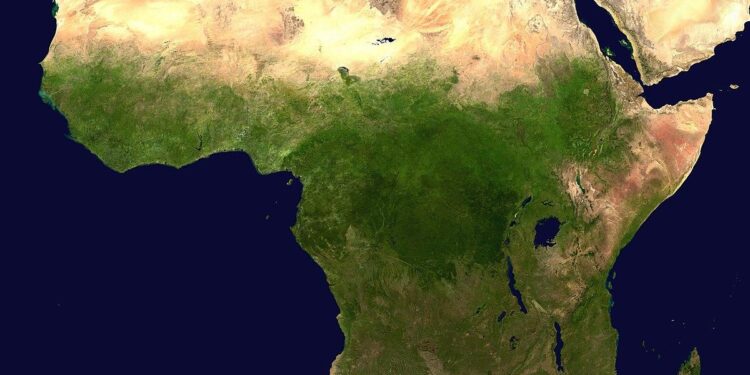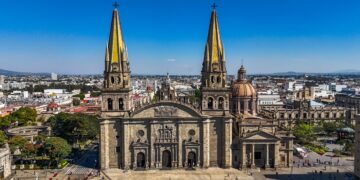Empowering Africa from Within: A Vision for Sustainable Growth and Economic Self-Reliance
In an era marked by shifting geopolitical landscapes and intertwined global economies, African countries face a pivotal moment that calls for deliberate reflection and strategic planning. Leading economic analysts emphasize that the continent’s prosperity depends largely on internal investment—leveraging its abundant natural wealth, nurturing indigenous businesses, and upgrading critical infrastructure to stimulate enduring economic advancement. Amidst global market volatility and external pressures, Africa must champion its own development priorities to build resilience against outside shocks while uplifting local communities. This article explores the vital importance of self-reliance by investing in domestic industries, education systems, and technological innovation as Africa charts a sustainable path toward inclusive growth.
Africa’s Path to Economic Sovereignty: Harnessing Domestic Capital
The urgency for African nations to achieve financial autonomy has never been clearer. Blessed with vast natural resources and one of the world’s youngest populations—over 60% under age 25 according to recent UN data—the continent is uniquely positioned to fuel growth through homegrown investments. Prioritizing local industry development not only generates employment but also sparks creativity and revitalizes communities across diverse regions.
Focusing on sectors such as agribusiness, clean energy technologies, and digital services can help reduce dependency on foreign funding sources while building robust economies capable of weathering external disruptions. This shift towards self-sufficiency is essential for empowering citizens economically while raising living standards sustainably.
Moreover, fortifying domestic financial ecosystems plays a crucial role in stabilizing economies long-term. Effective approaches include:
- Expanding credit availability tailored specifically for small- and medium-sized enterprises (SMEs), which constitute over 90% of businesses in many African countries.
- Promoting public-private partnerships that combine governmental support with private sector expertise.
- Enacting transparent policies designed to boost investor confidence at all levels.
By actively mitigating investment risks domestically, African governments can cultivate vibrant financial markets attractive both locally and internationally—unlocking immense potential for sustained prosperity.
Fostering Innovation through Locally Rooted Solutions
Africa’s sustainable future hinges on tapping into its rich reservoir of talent by encouraging innovation tailored specifically to regional challenges. Supporting startups and small enterprises is fundamental—not only do they create jobs but they also drive transformative ideas across multiple sectors.
Key areas ripe for impactful investment include:
- Renewable Energy: Expanding solar microgrids adapted for rural electrification projects enhances energy access while reducing carbon footprints.
- Agritech: Deploying precision farming tools such as drone monitoring or AI-driven irrigation systems improves crop yields significantly amid climate variability.
- Healthcare Technology: Developing affordable diagnostic devices or telemedicine platforms addresses healthcare accessibility gaps prevalent in remote areas.
Accelerating this momentum requires strong collaboration between governments, private enterprises, academic institutions, and international partners—all working together within innovation hubs that provide entrepreneurs with mentorship programs alongside seed funding opportunities.
| Sectors Poised for Growth | Description of Impact Potential | Estimated Investment Required (USD) |
|---|---|---|
| DIGITAL TECHNOLOGY | Cultivates advanced digital skills; creates high-value employment opportunities | $220 million |
| SUSTAINABLE AGRICULTURE | Aims at boosting food security through increased productivity | $160 million |
| CLEAN WATER MANAGEMENT | Makes safe water more accessible; reduces health risks associated with contamination | $110 million |
Strengthening Education Systems & Infrastructure: Foundations of Prosperity
A resilient economy demands solid educational frameworks paired with modern infrastructure investments—both indispensable pillars supporting long-term development goals across Africa.
Governments must commit strategically toward:
- Evolving Curricula: Updating educational content ensures alignment with emerging industries like AI programming or green technology engineering—preparing youth effectively for tomorrow’s job market.
- Nurturing Public-Private Synergies: Partnerships between schools/universities & corporations facilitate practical skill-building aligned directly with labor market needs.
- Narrowing the Digital Divide:The expansion of internet connectivity coupled with access to digital tools empowers students nationwide regardless of geographic location.
Simultaneously upgrading physical infrastructure—including transport corridors linking production centers to ports—and reliable power grids are vital enablers facilitating trade efficiency while attracting foreign direct investment (FDI).
| Infrastructure Category | Expected Benefits / Outcomes |
|---|
| Infrastructure Type | | Potential Impact   | Transport networks reduce logistical costs significantly Energy systems ensure reliable power supply Telecommunications enhance connectivity enabling participation in global markets | </ th > </ tr > </ thead > </ table >
Conclusion: Key Insights Driving Africa’s Development Agenda ForwardAs attention increasingly focuses on Africa’s rising promise globally,the imperative message remains clear — investing inwardly is paramount.The Financial Times highlights how leveraging indigenous resources,talents,and innovations will enable nations across the continent not just meet,but exceed their developmental aspirations addressing unique socio-economic challenges simultaneously.In today’s rapidly evolving international environment,Africa’s capacityto shape its own economic destiny will define its standing worldwide.Policy makers,business leaders,and civil society actors must unite around frameworks promoting autonomyand resilience.At this transformative crossroads,the collective visionand strategic action will convert potential into measurable progress. Supporting Africa means committing wholeheartedlyto unlockingthe vast spectrumof possibilities embedded within.This journey demands unified resolveand forward-thinking leadership.The momentfor decisive actionis now —Africa holdsthe reins shapingits future trajectory.
| /
/
/
/
/
|---|















